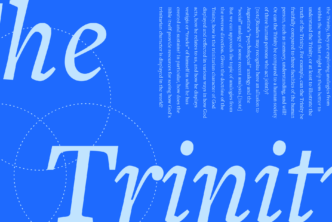In preparation for this blog post, I asked my 13-year-old nephew what he valued most in a small group leader. He said, “I just want someone who really wants to know me and cares about my life.”
That takes the pressure off being a perfect leader, doesn’t it? Students have an uncanny ability to sense when someone’s being fake, but they will respond to authenticity all day.
It can be easy to get overwhelmed with details of a Bible study: how to connect with teens, what kind of study, how to lead strong, etc. Let’s learn more about Gen Z and pick up some practical tips for your small group Bible study.
Get to know Gen Z
Barna defines this new generation as those born between 1999 and 2015. They’re the first generation raised on smartphones, social media, and selfies. They connect to friends and family differently than any other generation before them. This is due to the rapid changes in technology and business over the last 10–15 years and their experience growing up in the midst of this shift.
It can be easy to get frustrated with the behaviors and values of Gen Z until you take the time to know them and see what makes them unique. Entering their world can help you understand their behavior, connect with them better, and minister to them effectively.
Gen Z has insights to unlocking the future of youth ministry, and you have insights and experience that can help them as well. God has created the Church (young and old) to need and depend on one another.
Connection is important
Earbuds and smartphones might give the appearance that Gen Z wants to be left alone, but that’s not the case. Like all people, they have a deep desire for connection.
But because they’ve been raised on electronics, they are used to technology mediating their connection. They often feel more comfortable connecting online than face to face. You’ll be more likely to receive a text than a phone call from a student when they have a question or want to share something personal.
High achievers
Personal achievement is big for Gen Z, both for their sense of self and for their ultimate goals—particularly in their education, career, and finances. Every generation feels the need to have a successful career, but Gen Z differs in that they place their personal value in achieving personal goals rather than an identity from their family. Two-thirds of Gen Z want to finish their education (66%), start a career (66%), and become financially independent (65%) by age 30, while only one in five wants to get married by then (20%).
Value security
The older half of Gen Z is entering the workforce. They are more pragmatic about career decisions than their Millenial or Gen X parents. This is most likely because they were kids during the Great Recession and watched their parents go through employment and financial difficulties.
They’re also a generation of entrepreneurs. They want to avoid the debt that comes with higher education and often dive in the workforce and learn in new, creative ways.
The application
I’ve only touched the surface of what makes Gen Z unique. I’d encourage you to read more about them and discover new insights for yourself. For now, let’s get into the practical “how to” steps of an effective Bible study.
There are many different ways to approach Bible study, but we’ll focus on a simple three-step method: observation, interpretation, and application. Keep in mind these steps work for personal or group study with any generation.
Note: I had the privilege of learning this method from Dr. Howard Hendricks at Dallas Theological Seminary. You can learn more about Dr. Hendrick’s Bible study methods in Living by the Book through the Logos Bible app.
In this step, you ask and answer the question, What do I see? The moment you come to the Scriptures you ask, What are the facts? You assume the role of a biblical detective, looking for clues. No detail is trivial. That leads to the second step.
Here you ask and answer the question, What does it mean? Your quest is for meaning. Many people begin their Bible study with interpretation, but unfortunately, that’s where it ends. I’m going to show you that it does not begin there. Before you understand, you have to learn to observe, to “see.”
But Bible study doesn’t end with interpretation, because the third step is . . .
Here you ask and answer the question, How does it work? not, Does it work? People say they’re going to make the Bible “relevant.” But if the Bible is not already relevant, nothing you or I do will help. The Bible is relevant because it is revealed. It’s always a return to reality. And for those who read it and heed it, it changes their lives.
You might be thinking, “This could work for Romans, but how would I ever know how to teach Revelation?” What’s amazing about this method of Bible study is that it applies to all genres of Scripture. The main genres found in the Bible are history, law, wisdom, poetry, narrative, epistles, prophecy, and apocalyptic literature. You can understand and teach God’s Word (even apocalyptic passages) through observation, interpretation, and application.
Why is this so important?
An inability to correctly identify genres can lead to a misunderstanding of Scripture.
For example, wisdom literature is poetic, which employs metaphor, hyperbole, and other literary devices. Reading a poetic passage as literal can lead to a false interpretation of God’s Word. Second Timothy 2:15 instructs us to “Work hard so you can present yourself to God and receive his approval. Be a good worker, one who does not need to be ashamed and who correctly explains the word of truth.”
The more students understand Scripture, the more they can experience and share God’s plan for their lives and his unending love.
Choose the right study
Picking the right study for your group can feel pressure-packed. The good news is, it doesn’t have to be a daunting decision. Answer the following questions to decide what study is best for your group.
What’s the purpose?
This goes beyond learning more about God’s Word. Is there something specific your group members need? Maybe it’s learning how to have healthy relationships, or digging into a verse-by-verse study of Scripture.
Who’s in my group?
What have the students in your group learned previously? What questions do they have about the Bible? What are they going through right now, and what book of the Bible speaks best to those issues?
What’s the Holy Spirit saying?
Ask the Holy Spirit to guide you as you make your decision. In Philippians, Paul gives us a great example of praying before deciding how to approach people:
And it is my prayer that your love may abound more and more, with knowledge and all discernment, so that you may approve what is excellent, and so be pure and blameless for the day of Christ, filled with the fruit of righteousness that comes through Jesus Christ, to the glory and praise of God. (Philippians 1:9–11)
You can do the same when choosing the study, and trust that God will lead you to a great choice.
Generation Z kids may communicate differently than previous generations, but the felt needs they have are the same ones all people deal with––they want to be known, needed, and valued. It’s a huge privilege to speak the truth and life of the Bible to future generations.
Enjoy the generational differences and embrace the similarities as you lead students in Bible study.
Jess Holland is a graduate of Dallas Theological Seminary and a writer at Faithlife.





